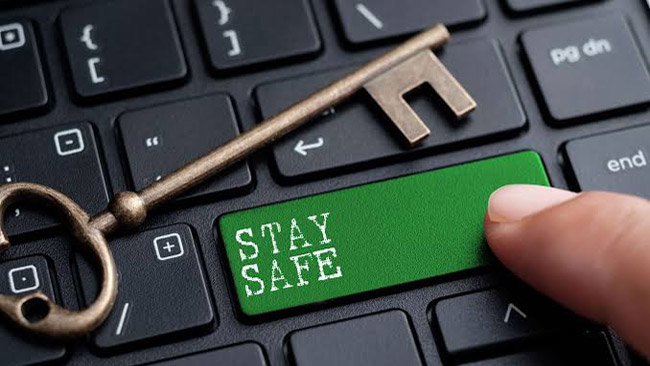
Just like any great invention or any good commodity, the internet too, if not used carefully can harm in multiple ways. In this article, we shall discuss a basic guideline for any internet user without any prior orientation and a very obvious to-do list for a newbie to the digital world. The Internet and everything that followed the internet is nothing but progressive, solution-oriented and totally comforting. However, there is always a downside to everything, if we may put it like that. Just like any other cons, we can always take precautionary measures to avoid anything harmful before it occurs. Even in the worst circumstances, if you have signed up for something as reliable as Cox internet plans. Then if something goes wrong in the online world working against everything at the same time and speed can offer smarter methods to recover anything lost, or deleted, or make a correction – unless it’s too late. Yes, only a high-speed internet can rescue in such situations along with your pro-activeness to figure out if something is fishy.
1. Keep Personal Information Professional and Limited
While the internet has brought unlimited information sharing methods,
sources, and social media, it has also allowed everyone to not only voice their
opinion but to share publically everything they do throughout their day. All
online platforms highly advise and advocate online security to keep information
of both personal and professional nature, confidential. The information shared
online can be misused and manipulated in numerous ways hence it is better no to
update your personal and contact details online. And of course, when it comes
to saving passwords, banking details, or anything that can be hacked or taken
control of must not be shared online even with the trusted ones.
2. Privacy Settings On
Keeping your privacy settings on and in-check saves you from
uncountable potential threats and scams.
The least someone can do is to imitate you and commit a crime under your name, or just misuse your information in the creepiest way no one thought about.
Therefore, when you share something, ensure it is being shared with people you
can trust only. Predominantly, if you let your kids use online platforms or anything where they can interact
with strangers, you should assure their history is checked, parental guidance
is on, and their privacy settings are also on so they don’t just share anything
private or something with which someone can track them physically. The list of
precautions for kids is countless, however, these are just suggestions based on
the cases that frequently take place.
3. Strong Passwords
Strong passwords assure security
and safety of everything you use online whether online banking, business
accounts, email or social networking websites, or you name it. There is a
reason when they say you should add a combination of alphanumeric, special character, a mixture
of caps and small letters because if someone sees or hacks any account, it
won’t be easy for them to remember or recall. Keeping password checks on
signing in or getting notifications if accessed through a new device are also
similar options to keep a check on your online accounts.
4. Updated Antivirus
Everything aside, a few points mentioned in this article included, even if everything is well taken care of but the antivirus is not updated regularly it can make everything done null and void. Why? Because bugs and viruses are constantly updated and as a result anti-virus software becomes obsolete unless updated. It can save huge amounts of data from getting lost and there are smart hackers who can access your systems particularly through a bug or any loophole that they can use for getting in.
5. Watch What You Share and Post
As much as cybercrime is real, so
is cyberbullying and hate speech.
Therefore, one should take full responsibility for
what they are posting online on any social media platforms particularly when
commenting about an organization, laws, court decision, or any personality and
yes the person you are mentioning publically does not have to be a celebrity –
they can be just anybody. If anything offensive, false, or demeaning is posted
it can result in defamation, libel or any legal action that is appropriate for
the situation. A very important yet most
neglected part of social media norms.

Post a Comment